
“Please don’t even try to talk to me until I’ve had my coffee!”…Does this sound familiar? The truth is, if you have a thyroid condition, coffee is not your friend because it may play a role in adrenal fatigue and make it even more challenging to get better.
The adrenal glands are very tiny structures that sit on top of each kidney. They function to produce several hormones that are essential to life, including the sex hormones progesterone, testosterone, and estrogen. The inner portion of the adrenal gland produces adrenaline and noradrenaline; however the most popular talked about adrenal hormone is cortisol. Cortisol balances metabolism, supports immune function, and regulates all the other hormones previously mentioned. As with any hormone we notice symptoms when we have too much or too little. When the adrenals are producing insufficient amounts of cortisol there will often be a variety of symptoms including fatigue, low blood pressure, dizziness upon standing, low blood sugar (with the need to eat often), eyes that are sensitive to light, and more. It’s usually the nagging symptom of daily fatigue that is often the most common complaint driving people to their doctor for help. Fatigue is also the symptom behind the idea to drink more coffee as a “pick-me-up” to make it through the day.
This is not an anti-coffee post. I want to share a personal story to show you what can happen with daily, long-term use of coffee.
When if comes to coffee, many people will say “it doesn’t bother me.” And yet, they have symptoms of uncontrolled blood sugar, food cravings, inability to control their weight, fatigue, and difficulty sleeping. I totally love the taste of coffee and although I chose to give it up, I can relate to how hard it was because coffee is a morning ritual for many.
It’s problematic when we become reliant upon it to try to stay focused and energized throughout the day. It’s also concerning for night shift workers whose Circadian rhythm is already compromised – and they’re drinking coffee simply to stay awake.
Why I Decided to Give up Coffee
I drank coffee for many years without any problems (that I associated with coffee) and then when I founded my own company in my late 20s I began to drink it throughout the day and into the early evening.
Building a company, lots of business meetings, and busy detail work demanded my full attention.
At one point I began to experience anxiety attacks which led to full blown panic attacks. I was in denial that coffee could possibly have anything to do with it.
One morning, after leaving home with a coffee cup in hand driving in to my office, I experienced an anxiety attack while driving. I stopped for a red light at an intersection, and suddenly I felt as though I was in a tunnel (narrowed visual field) and felt like I was on drugs.
Somehow, I thought the light turned green, and I drove on through. The light had not changed and I was trembling as I pulled over realizing I had just driven through a red light. It is a miracle I wasn’t injured or didn’t harm anyone else.
That was the beginning of the end of my coffee adventures and I’ve never gone back. Sure, I’ve had a cup of delicious decaf with almond milk now and then, but knowing what I know now about how caffeine affects me overall – well, the taste of coffee just isn’t worth that much to me.
Did you know that the coffee bean was the original “pesticide?” Yep it’s true…but that’s a topic for another post.
Testing for Adrenal Fatigue
The term “adrenal fatigue” is commonly used in integrative and functional medicine for low cortisol and it is gaining recognition in conventional medicine as a valid medical diagnosis “hypoadrenia,” which is actually how it should be referred to.
Hypoadrenia is diagnosed by using an at-home 24 hour saliva test for cortisol. Blood work to diagnose adrenal fatigue associated with low cortisol often results in a false negative result since the venipuncture (insertion of the needle to draw blood) is just enough of a physiological stressor to cause the adrenals to release even a small amount of cortisol making it appear that cortisol levels are normal.
If you drink coffee on a daily basis and especially throughout the day or night for energy, you should be tested because an addiction to caffeine is often masking an underlying problem with the adrenals.
How adrenal fatigue is treated is a fine line because it depends on one very important factor: whether or not your catecholamines are elevated. Catecholamines are neurotransmitters like dopamine, epinephrine and norepinephrine which control a variety of functions including:
- muscle tone
- heart rate
- blood pressure
- glucose (sugar) metabolism
Catecholamines are mainly produced in your adrenal glands and levels can fluctuate in response to physical or emotional stress, outside temperature, blood loss, exercise, low blood sugar, and moving from sitting to standing, or vice versa.
If you are experiencing adrenal fatigue, I really do encourage you to find out which applies to you:
- Low cortisol with high catecholamines (hypervigilance)
- Low cortisol with low catecholamines
Take this free Adrenal Fatigue Quiz for Women.
I bet your doctor never discussed this but it’s really important if you want to truly target adrenal fatigue and heal. The quiz is very accurate in detecting whether or not you have high or low catecholamines (feeling wired and tired, or not).
But if you love objective data, e.g. lab test results as proof and to know for sure, DirectLabs offers a really good test called Catecholamines, Fractionated, Urinary Free, 24-Hour Urine that you can do at home.
Causes of Adrenal Fatigue
Adrenal fatigue can be triggered by stress, poor diet, heavy exercise, consumption of caffeine, sugar, and nutrient deficiencies.
People often associate the word stress primarily with emotional stress but where the body is concerned, and especially in adrenal fatigue, it could also be physiological stressors such as chronic infections, surgery, insufficient protein & essential fatty acids, lack of sleep, working night shifts, chronic pain, and inflammation from Hashimoto’s or other autoimmune conditions.
As for emotional stress, unremitting stress and excessive worrying are causative factors.
However, in any one of these situations the body perceives stress as a threat which prompts the adrenals to produce cortisol and other hormones in an effort to sustain the body through the crisis.
When stress is unmanaged and continues long-term, the adrenals will eventually reach their “tipping point” and can no longer keep up the pace. The result is a decline of cortisol to the point of bottoming out and if not caught early on will result in advanced stage adrenal fatigue which can take a very long time to heal and may even lead to Addison’s disease…which is a complete failure of function of the adrenal glands and is life threatening. President John F. Kennedy was diagnosed and struggled with Addison’s which pushed him into Cushing’s disease as a result of the treatment.
Whether it be cancer or any of the 100+ autoimmune conditions including Hashimoto’s, rheumatoid arthritis, multiple sclerosis, lupus, and more, it is the state of chronic inflammation in the body that over time can result in an adrenal gland “crash.”
Generally, coffee (or other popular “energy” drinks) is what many people reach for to try to sustain energy levels especially since coffe, in particular, is perceived as being safe.
It’s not that coffee is necessarily unsafe so please don’t get the wrong idea.
One of the most common concerns I hear from women I work with is realizing they have an addiction to coffee and knowing it is exacerbating daily fatigue and worsening their symptoms.
They know they are putting their adrenals through a stress response and blood sugar ups & downs in an effort to increase energy, and they understand it is a vicious cycle, but they don’t know how to break their addiction to caffeine. These women are concerned and don’t know what to do because coffee is their primary energy fix, albeit short-term.
It is important to work through a coffee addiction in a way that is natural and healthy.
How to Break-up with Coffee
 For those who love the bitter taste of coffee, using un-sulphured blackstrap molasses in hot water is very effective!
For those who love the bitter taste of coffee, using un-sulphured blackstrap molasses in hot water is very effective!
Start with a teaspoon and adjust to your liking. It actually does taste very similar to the bitter taste of black coffee which is nice.
Unsulphured blackstrap molasses is a healthy alternative to coffee and is rich in iron, potassium, and calcium.
There isn’t any concern about spiking blood sugar levels since blackstrap molasses are the “last batch,” in the process of extracting molasses. It’s actually good for you! I can hear my grandmother in my mind reminding me of this fact because she used this form of molasses all the time for health reasons back in the 1960s.
If this isn’t something you would want to try, you could start introducing decaffeinated beans when making your coffee. I recommended buying coffee beans over ground coffee because ground is often contaminated with gluten and other junk.
If you’re really struggling and need to push yourself through the day by relying on coffee, start mixing regular coffee beans with decaffeinated ones to avoid caffeine withdrawal (compromised adrenals can’t handle the stress of withdrawal and you don’t need this misery!).
Other ways to Improve Energy Naturally
There are other ways to support the body naturally and safely for energy while supporting the adrenals at the same time. By simply adding a few nutrients along with antioxidants to your regimen you will turn on the body’s energy pathways and optimize the mitochondria’s ability to turn food into energy. In nursing school I always remembered the function of mitochondria by referring to it as “mighty mitochondria!” because this odd shaped structure inside the cell is an energy powerhouse whose job is to act as the generator, so to speak, but it needs natural, unprocessed sources of energy to function well and sustain YOU.
By incorporating just a few items you will start to notice a difference in energy levels. Carnitine is one of those nutrients I want you to consider. Carnitine is present in some foods, e.g., mostly in animal protein and especially in darker meats like lamb, beef, and mutton.
But with conventionally farmed meats and their reduced quality, and so many opting for a vegetarian lifestyle, many people aren’t getting enough carnitine. RiboCarniClear and Carnitine Synergy are beneficial for people who want to get off of caffeine to sustain natural energy levels, shed excess body fat or high triglyceride levels, and support the heart and immune systems.
In addition to carnitine, including magnesium, vitamin C, vitamin E, and a B complex formula will help to improve energy in a healthy, natural way. I also used this exact adrenal complex formula to support my adrenals during my journey to heal Hashimoto’s and still do for maintenance. The rationale for using high-quality specific nutrients to support the adrenals, and improve energy naturally are many.
During periods of stress, whether emotional and/or physiological, the adrenals utilize a lot of magnesium.
Magnesium is the nutrient that calms the body and most of us are deficient.
If you are unsure, be sure to ask your doctor for an RBC (red blood cell) magnesium test & not just a magnesium test. We really aren’t as concerned with how much magnesium is circulating in the bloodstream . . . it is also important to know how much magnesium is inside the cell.
As for vitamin C, it is a powerful antioxidant & a water-soluble vitamin essential to adrenal health. Now, I was taught in nursing school that because vitamin C is water soluble that taking high doses is basically useless (the idea put forward was that the excess ends up in the toilet and was useless to take). This isn’t really the case because while vitamin C is in the body, the highest concentrations are found (or should be found) in the adrenal cortex. Plus, when we eliminate vitamin C from the body, the flushing action through the kidneys, bladder, and particularly the ureters is a good thing for those tissues.
Note the brand of vitamin C I’ve highlighted is made from a whole food source: blood oranges. When using vitamin C therapeutically, you want to avoid any product that is derived from ascorbic acid according to most integrative & functional medicine doctors.
Vitamin E is also a powerful antioxidant and works in concert with vitamin C. All of the B vitamins support nerve health and help the body’s coping mechanisms for stress. It’s hard to take them all individually, and the B-complex I’ve noted above is high quality and easily absorbed.
Finally, using an adrenal complex is wise. We all face daily challenges, busy schedules, and technology that cause stress and strain. It’s all very taxing on the human body! Some are derived from animal glandulars, others from plant extracts. I like them both depending on what stage of adrenal fatigue a person is actually in. The one I used brought me out of the depths of fear and fatigue and helped me to cope through my worst stages.
Using natural sources of energy will help to slow the aging process, extinguishing free radicals, reduce oxidative stress, support and healing the adrenals, and optimize cellular health to keep you feeling healthy longer.
Update: Action Step:
Take the Adrenal Fatigue Quiz for Women – new research shows not all adrenal fatigue is the same. You may be experiencing a “wired and tired” feeling depending on the level of your catecholamines (neurotransmitters). CLICK HERE to take the quiz – it only takes a few minutes and you will receive a customized mini care plan to help you get on the right healing path.
Read Next: Uncommon Factors that may Block Thyroid Medication
Resources:
- Crayhon, R. (1998). The Carnitine Miracle, M. Evans & Company, pp. 16-19.
- Gehrke, L (2014) Kick Your Patient’s Caffeine Habits! Walnut Creek, CA: Cambiati Wellness.
- Haskell, A (2011), Hope for Hashimoto’s, Park City, Utah: Advancing Medical Care, Inc.
- Life Extension (2003). Disease Prevention and Treatment: Scientific Protocols that Integrate Mainstream and Alternative Medicine, pp. 13-17.
https://twitter.com/AutoimmuneRN/status/482955886500249600
Shannon wants to know: Do you struggle through your day feeling “wired but tired” – as though you always need a nap? Take the Adrenal Fatigue Quiz for Women to learn what you may need to differently to heal your adrenals.

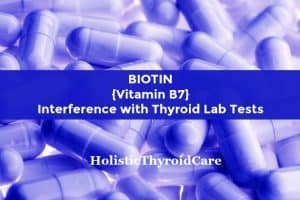
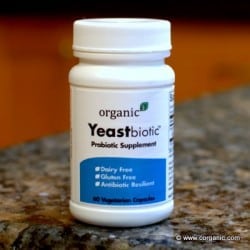
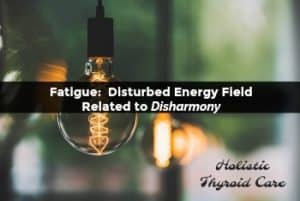
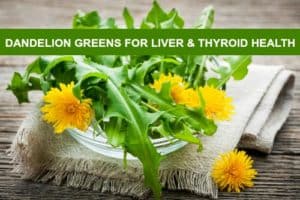

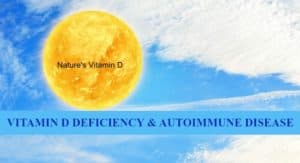
One Comment